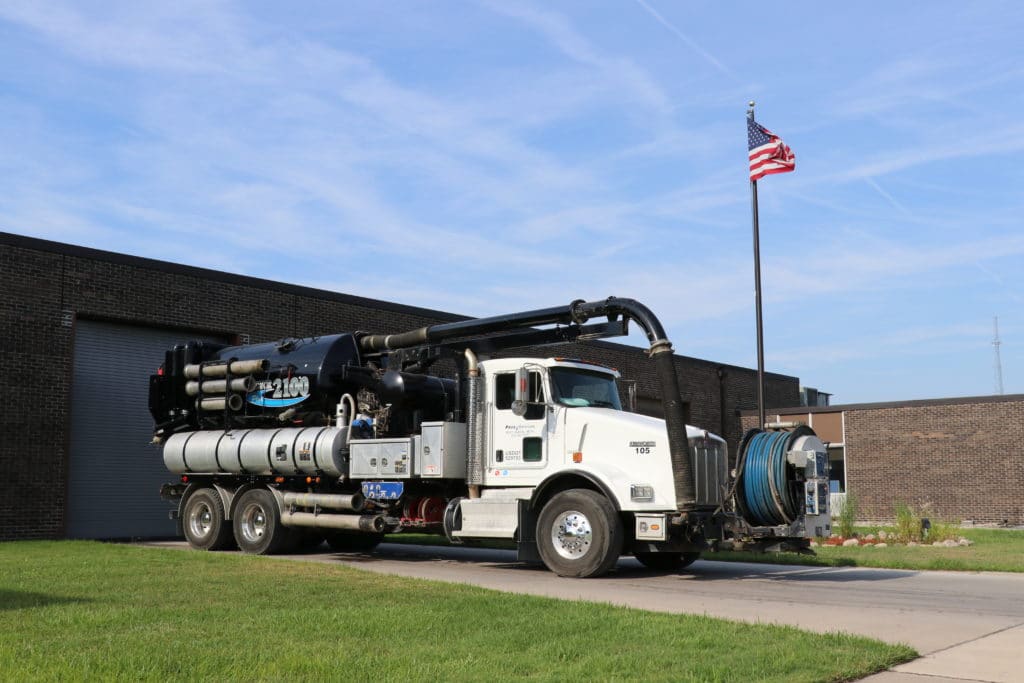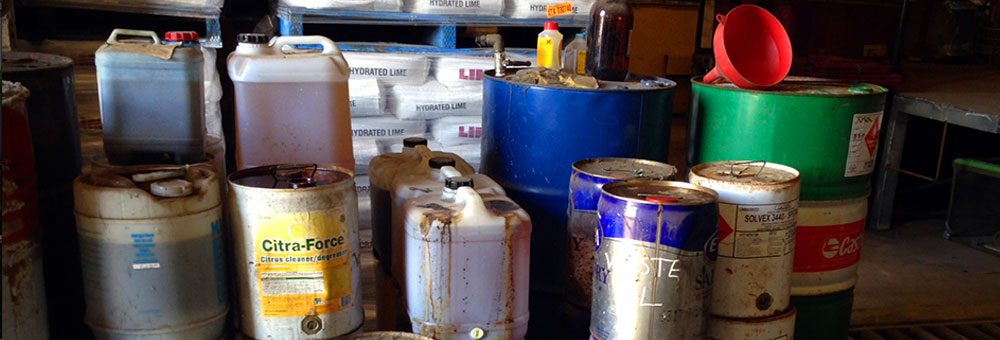Understanding the Comprehensive Process of Liquid Waste Disposal: Finest Practices and Environmental Effect Considerations
The monitoring of liquid waste disposal is a complex concern that needs a complete understanding of various finest methods and their linked ecological effects. From the types of liquid waste generated to the methods utilized for collection, treatment, and final disposal, each step plays an important role in securing ecosystems and public health and wellness.
Kinds of Liquid Waste
Comprehending the numerous sorts of liquid waste is essential for effective management and disposal methods. Fluid waste can be extensively classified right into several kinds, each calling for distinct handling and treatment techniques.
Industrial fluid waste frequently includes dangerous materials, consisting of hefty steels, solvents, and chemicals, generated during producing procedures. These wastes demand rigorous regulatory compliance to secure human wellness and the setting. Domestic liquid waste mainly refers to wastewater produced from families, consisting of sewage and greywater, which, although less hazardous, can still posture substantial dangers if improperly managed.
Agricultural liquid waste, including runoff from farms, commonly has plant foods and chemicals that can lead to ecological degradation otherwise dealt with adequately. Medical fluid waste, created from medical care centers, consists of infected liquids such as physical fluids and chemicals, needing specialized disposal methods to avoid infection and environmental contamination.
Finally, oil and grease waste, normally generated by dining establishments and auto sectors, can trigger serious blockages in sewer systems otherwise taken care of effectively. Understanding these categories facilitates targeted strategies for therapy, conformity with guidelines, and effective disposal methods, inevitably advertising environmental sustainability and public health safety and security.

Collection Methods
Reliable collection techniques are essential for the correct administration of liquid waste, making certain that it is gathered securely and successfully before treatment or disposal. Different strategies are employed relying on the type of fluid waste produced, the quantity, and the certain characteristics of the waste.
One usual technique is making use of devoted collection containers or sumps, which are developed to record liquid waste at the resource. These systems frequently include pumps that help with the transfer of waste to bigger storage space containers or treatment centers. In addition, mobile collection devices furnished with vacuum cleaner technology are used in situations where waste is produced periodically or in hard-to-reach areas.
For industrial settings, closed-loop systems can successfully minimize spills and leaks, permitting the recovery and reuse of liquid waste. It is likewise necessary to train workers on correct collection protocols to reduce threats related to hazardous compounds.
Moreover, applying normal upkeep schedules for collection equipment guarantees ideal efficiency and safety and security. The assimilation of advanced monitoring systems can enhance collection effectiveness by offering real-time information on waste degrees and prospective dangers. On the whole, reliable collection approaches are fundamental to sustainable fluid waste management practices.
Treatment Processes
Therapy processes play an essential duty in the administration of liquid waste, changing potentially unsafe products right into recyclable resources or safe effluents - liquid waste disposal. These processes can be broadly classified right into physical, chemical, and organic techniques, each tailored to address details impurities existing in the waste stream
Physical treatment methods, such as sedimentation and purification, job by eliminating suspended solids and particle issue. These methods are typically the very first step in the therapy chain, successfully minimizing the load on succeeding processes. Chemical treatments entail using reagents to reduce the effects of hazardous substances, speed up heavy steels, or oxidize natural pollutants, thereby boosting the safety of the effluent.
Organic treatment procedures, including turned on sludge systems and anaerobic digestion, exploit on the natural capacities of microorganisms to deteriorate natural issue. These approaches are specifically efficient for wastewater having naturally degradable toxins. Advanced treatment pop over here innovations, such as membrane layer filtration and progressed oxidation procedures, are increasingly utilized to attain greater levels of purification.
Integrating a mix of these therapy methods not just guarantees conformity with governing criteria but likewise advertises ecological sustainability by recouping valuable resources from liquid waste.
Disposal Options
Exactly how can companies make certain the accountable and risk-free disposal of fluid waste? Efficient disposal alternatives are crucial for protecting public health and wellness and the atmosphere. The main techniques consist of land therapy, incineration, and disposal complied with by discharge right into local wastewater systems.
Land disposal includes the cautious containment of liquid waste in assigned garbage dumps, making sure that it does not leach into surrounding soil or water. Incineration, on the various other hand, topics fluid waste to high temperature levels, transforming it into ash and gases, which require appropriate filtering to reduce emissions. This method is suitable for contaminateds materials that can not be dealt with with conventional means.
In instances where fluid waste can be dealt with, organizations may select chemical or organic treatment procedures to counteract dangerous elements before releasing the dealt with effluent into municipal systems. This course normally lines up with regulatory needs, making sure that the effluent meets safety requirements.
Eventually, companies have to carry out comprehensive assessments of each disposal alternative to identify its viability, taking into consideration elements such as waste make-up, regulative compliance, and possible risks to wellness and the environment. By selecting proper disposal methods, organizations can contribute to a liable waste administration method.
Environmental Effect
The environmental effect of fluid waste disposal is a critical factor to consider for organizations seeking to decrease their ecological impact. Improper disposal techniques can bring about considerable contamination of water resources, dirt degradation, and damaging effects on regional ecological communities. As an example, harmful liquids can leach into groundwater, posturing risks to alcohol consumption water products and water life. Furthermore, the discharge of without treatment or improperly dealt with waste into surface area waters can lead to eutrophication, leading to oxygen exhaustion and the succeeding death of fish and various other microorganisms.

To minimize these influences, companies need to embrace finest practices such as executing rigorous waste therapy procedures, promoting recycling and you can try these out reuse, and adhering to regulatory criteria. By taking a positive method to liquid waste management, entities can dramatically lower their environmental footprint while supporting lasting advancement goals. Ultimately, a thorough understanding of the ecological impacts related to fluid waste disposal is important for educated decision-making and accountable stewardship of natural deposits.
Final Thought
Efficient monitoring of liquid waste is important for guarding environmental stability and public wellness. Ultimately, an extensive understanding of liquid waste disposal not just minimizes environmental impacts however additionally cultivates a commitment to responsible resource administration and ecological stewardship.
The monitoring of fluid waste disposal is a multifaceted issue that requires a detailed understanding of various ideal techniques and their connected ecological influences. From the kinds of liquid waste generated to the techniques utilized for collection, treatment, and final disposal, each step plays an essential role in safeguarding communities and public health and wellness.The ecological effect of liquid waste disposal is a vital factor to consider for organizations seeking go right here to reduce their environmental footprint. Ultimately, an extensive understanding of the environmental impacts associated with liquid waste disposal is essential for informed decision-making and liable stewardship of all-natural sources.
Eventually, an extensive understanding of liquid waste disposal not only minimizes ecological effects however likewise fosters a commitment to responsible source monitoring and ecological stewardship.